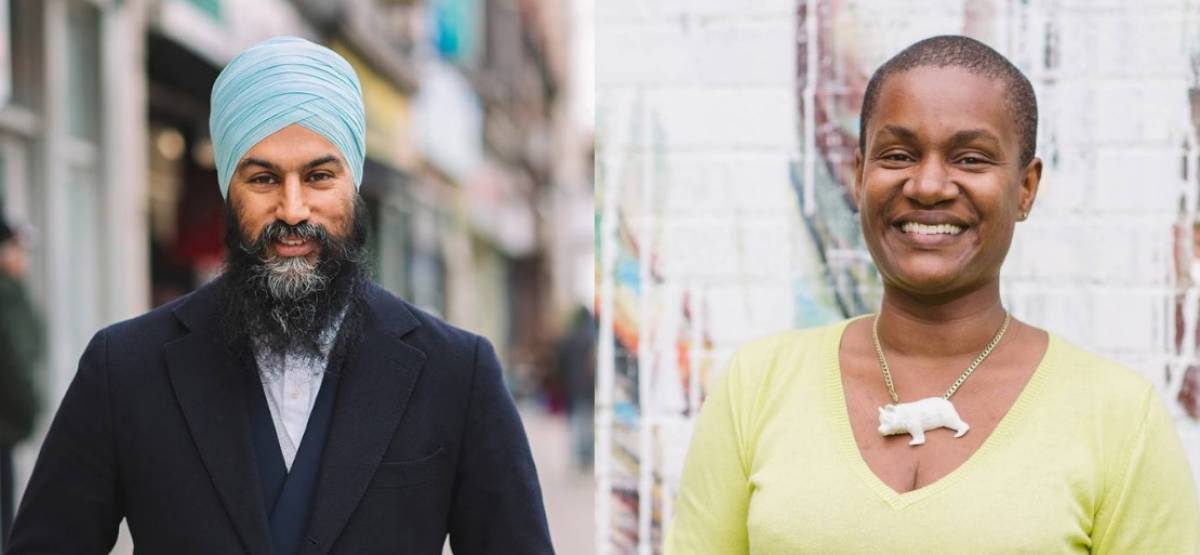Articles Menu

August 21st, 2021
If you're reading this article, it's because you're interested in federal politics. I'm guessing that the headline captured your attention.
I'll elaborate on this headline deeper in the piece. But first, I'm going to set the table with a quick synopsis of the contradiction between Canada's energy policy and climate policy.
Justin Trudeau's cabinet has approved two major pipeline projects—the Trans Mountain expansion and Enbridge's Line 3—while promising net-zero emissions by 2050.
The sheer impossibility of the Liberals achieving this climate objective has been starkly laid out by retired Vancouver lawyer David Gooderham and educator Jennifer Nathan.
In a document on their website, they point out that Canada's Energy Future 2020 report shows that the country's total oil production will peak at 7.1 million barrels per day in 2045. That's more than 2.2 million barrels per day above the 2019 level.
The report was prepared by the Canada Energy Regulator, formerly known as the National Energy Board.
Yet Gooderham and Nathan note that a federal government document released the following month, entitled A Healthy Environment and a Healthy Economy, purports that overall carbon-dioxide-equivalent emissions will be reduced to 503 million tonnes by 2030.
In 2019, the national total of carbon-dioxide-equivalent emissions was 730 million tonnes.
So this reduction of 227 million tonnes annually by 2030 in the second report would account for more than three times B.C.'s annual output of 67.9 million tonnes recorded in 2018.
Yes folks, oil production is forecast to increase in Canada but that will be accompanied by monumental reductions in greenhouse-gas emissions, according to these different federal reports.
This second report includes the usual government twaddle about carbon-capture technology, which has never achieved significant reductions in global greenhouse-gas emissions.
In July, hundreds of organizations signed a letter to Justin Trudeau and four of his cabinet ministers expressing "deep concerns" about their support for carbon-capture technology, which these groups argue will only intensify the climate crisis.
But there's even more.
On their website, Gooderham and Nathan point out that this year, the International Energy Agency called for "an immediate halt to any further expansion of global production" to achieve net-zero emissions globally by 2050.
This came in a 224-page report. The IEA emphasized that even if all governments' climate promises were kept, there was little chance of the world meeting the goals outlined in the 2015 Paris Agreement.
"For Canada, the world 4th largest oil producer, this report has enormous implications," Gooderham and Nathan write.

If there's one thing that many New Democrats and the Greens can agree on, it's that the Liberals haven't been radically different from the previous Conservative government in addressing the climate crisis.
The Trudeau government's justification for the $12.6-billion Trans Mountain Expansion Project was that oil consumption would increase for 30 years, according to Gooderham and Nathan. But they quickly add that this consensus is now beginning to dissolve.
There is similar doubt emerging on the production side.
"The argument in favour of the TMX project, when it was approved in 2016, was based on the proposition that Canada will need additional pipeline capacity to facilitate the expected production increases over the next two decades," Gooderham and Nathan state. "Now that proposition is being seriously challenged."
A recent heat dome that settled over B.C. coincided with nearly 600 more deaths than normal from June 25 to July 1. That's the equivalent of two Boeing 767-300 planes crashing into the sea, killing all passengers and crew.
If we don't contain greenhouse-gas emissions, we'll endure more deadly heat domes, more brutal wildfire seasons, and far weaker wild-salmon runs as the fish will be fried by higher water temperatures. Can the Liberals and Conservatives be counted to do that, given their support for continued expansion of fossil-fuel production in Alberta?

Covering climate issues is complicated, which is one reason why they never receive their due in the mainstream media.
Reporters need to be familiar with the math. It's doubtful that even 10 B.C. journalists could tell you off the top of their head how many tonnes of carbon-dioxide equivalents are emitted each year in this province.
In addition, climate journalists must have a basic understanding of many feedback loops, including thermohaline circulation and the albedo effect. They need to appreciate the impact of deforestation and wildfires on carbon storage because at a certain point, a carbon sink becomes a carbon emitter.
The same need for climate literacy is necessary in our politicians. Yet in a BBC interview last year, Swedish climate activist Greta Thunberg said that many world leaders are remarkably ignorant about climate issues.
"The level of knowledge and understanding even among people in power is very, very low, much lower than you would think," Thunberg told the BBC.
Fortunately on Vancouver's West Side, there are candidates running who have a far deeper undertanding than the norm.
Vancouver Quadra Liberal incumbent Joyce Murray is extremely knowledgeable. She focused her academic work in this area, even if she hasn't managed to convince the cabinet on the need for bolder action.
She's running against climate scientist Devyani Singh, who's the Green candidate.
The NDP also has a highly climate-literate candidate on Vancouver's West Side. Anjali Appadurai is carrying the party's banner in Vancouver Granville. She's the climate-justice lead at Sierra Club B.C.
Appadurai demonstrated her deep insights into climate issues in this commentary, which appeared on Straight.com in May.
Singh, a Green, and Appadurai, a New Democrat, would bring genuine climate consciousness and passion for action into Parliament.
But sadly for climate voters, they each have a political problem. Some of their natural supporters will vote for the other one's party candidate in their ridings.

In Vancouver Granville, the Greens are expected to run longtime antiracist and queer activist Imtiaz Popat, who also cares deeply about the climate. Undoubtedly, he'll take some votes from Appadurai, thereby helping the Conservative or Liberal win the seat.
The Greens have no chance in Vancouver Granville given their paltry budget. The NDP, on the other hand, came second in this riding in 2015.
Appadurai could conceivably pull off a miraculous victory if three things happen: she wins over most climate voters, the climate emerges as this year's ballot-box issue, and the vote splits in an optimal way between the other candidates.
In Vancouver Quadra, the NDP is running hotel-union activist Naden Abenes, who has no chance, given this riding's history. Devyani Singh also doesn't have a great chance, given the margin of Murray's victories in the last two elections.
Now, I'll get to the point of my headline.
Does NDP Leader Jagmeet Singh truly care about the climate? For that matter, does Green Leader Annamie Paul?
They're both trying to portray themselves as climate heroes on the campaign trail. But by each running a candidate against Appadurai and Deyani Singh on Vancouver's West Side, Paul and Jagmeet Singh's actions demonstrate the exact opposite.
These two federal leaders do not want to make it easier for West Side residents to have a truly strong climate activist as their representative in Parliament.
Let's be blunt about this. Jagmeet Singh and Annamie Paul are putting their party's interest ahead of the country's interest.
If there were ever a time for the NDP and Greens to cooperate, it's in the wake of this deadly heat wave and truly awful wildfire season.
Jagmeet Singh needs to tell his candidate in Vancouver Quadra to step down to give Devyani Singh a better chance against Joyce Murray.
And Annamie Paul should insist that no Green run for office in Vancouver Granville to offer a better chance to Appadurai.
To do otherwise makes a mockery of these leaders' claims to truly care about climate action.
Along the same lines, the Greens should ensure that nobody runs against the NDP's climate-literate Avi Lewis in West Vancouver–Sunshine Coast–Sea to Sky Country.
The NDP could toss one of its candidates in an unwinnable riding onto the bonfire in return for that favour. For example, does anyone really believe that the NDP has a chance in Prince George–Peace River–Northern Rockies? Or Abbotsford?
I have no doubt that Popat and Abenes are dedicated activists who have a great deal to offer voters. Both have made tremendous sacrifices on behalf of the broader community. I've known Popat for decades and we've run his opinion pieces on this website. This is not a commentary on their quality as candidates.
In fact, I think that Paul and Jagmeet Singh should find other ridings where they could run. But on the West Side of Vancouver, climate is an important voting issue for far more voters than in many other parts of Canada.
The climate crisis is real. The government needs to be held more strongly to account on this life-and-death concern. And that's why Devyani Singh should be permitted to run without bleeding votes to the NDP and Appadurai shouldn't have to concede climate voters to the Greens.
It's a no-brainer for anyone who truly cares about the climate.
Are you listening, Jagmeet Singh and Annamie Paul?
What will you tell the next generation when they ask about what you did in 2021, when there was still time to avert the absolute worst catastrophe? That you went out of your way to defeat outstanding, climate-literate candidates? Or that you made a deal for the good of the planet?
Jagmeet Singh and Annamie Paul, are you real leaders?
Or are you just like all the rest of the politicians who talk a good game on climate, but don't really step up when it involves making a genuine sacrifice?
We in Vancouver are watching both of you on this one.
And as we watch, we'll be thinking about the people of Lytton, whose town burned down, as well as the hundreds of people who died in the recent heat wave and the countless number of species that are going extinct around the world.
[Top image: Vancouver Granville NDP candidate Anjali Appadurai and Vancouver Quadra Green candidate Devyani Singh would each bring a deep understanding of climate issues, as well as tremendous passion for action, to Ottawa.]